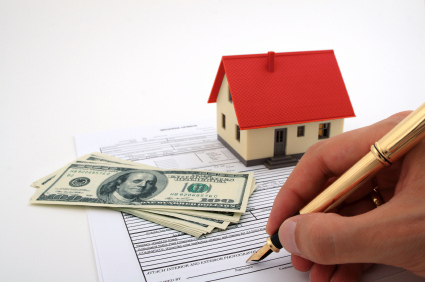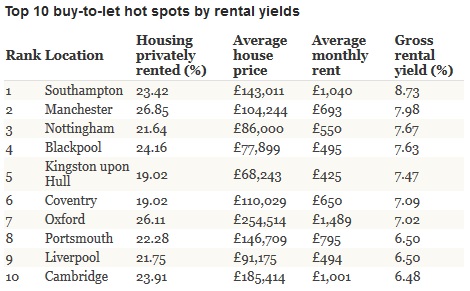August 20th, 2014.
Property Investment Dilemma: Do I rent or do I sell?

Image: MarkMox12
To rent or not to rent? To sell or not to sell?
These are the questions upper-most on the minds of anyone with an investment portfolio of real estate.
With the recent skyrocketing of house prices in London, the air is rife with speculation as industry experts and pundits throw in their tuppence over the best course of action in this highly charged atmosphere. To clarify the issue, this article will look at the pros and cons of renting versus selling (including which offers a greater yield), and also show you which cities are the hot spots for selling and renting.
What is your capitalisation rate?
Now when it comes to deciding whether to sell or rent out your property, the most important number you need to figure out is your capitalization rate (cap rate).
The technical definition of “capitalization rate” is:
The ratio between the net operating income produced by an asset and its capital cost (the original price paid to buy the asset) or alternatively its current market value.
Here’s the formula:
Capitalization rate = annual net operating income ÷ cost (or value) of property
So if you bought a property for £1,000,000 and over the course of a year it produced £100,000 in positive net operating income (i.e. total rental income minus total fixed and variable costs), here’s what your cap rate would be:
£100,000 ÷ £1,000,000 = 0.1 = 10% (so each year you get back 10% of the value of the property)
If you bought the property a few decades ago for £200,000, then your cap rate would be: £100,000 ÷ £200,000 = 0.5 = 50% (here, each year you get back 50% of the value of the property)
In essence, the higher the cap rate, the more favourable it is for you to rent out the property. This is because the cash flow it generates for you each month is a significant percentage of the amount of value tied up in the property.
But the other thing to bear in mind is that if your property is worth £1million and you don’t sell it, you could be missing out on selling it for its full market value and then reinvesting that £1million in an opportunity with a far higher cap rate than your current property. So bear the opportunity cost of not selling your property and make sure todiscuss it with your commercial finance brokers.
What are the best places to rent or sell your property?
Now that you’ve calculated the cap rate on your property and looked at the opportunity costs of renting vs selling with your financial advisors, the question is: which are the best places to rent or sell properties in the UK?
The answer to this is constantly in flux. But there are findings like these from the Telegraph outline the best (and worst) places to rent out property. Here’s a summary of the results:

As with cap rate, the higher the gross rental yield, the more potentially profitable the opportunity. But the caveat is that gross rental yield does not take into account the fixed and variable costs involved in renting out a property. These haven’t been deducted yet and so it’s important to calculate these with your financial advisors to obtain an accurate and useful figure.
So when it comes to your property, should you rent it out or sell it?
As we wrote in a previous blog post, it all comes down to the strategy you formulated when you bought the property.
Now if you didn’t formulate a strategy, not to worry. As a firm, we routinely help customers who want to unleash the full financial potential of the real estate in their investment portfolio. So we can speak from experience to make sound financial decisions about your property.
But even before you take this step, simply looking at the cap rate, the gross yield rate, and your own financial goals will help give you a general sense of whether or not you should sell your property.





